Tag Archives: Gov. Mike Dunleavy
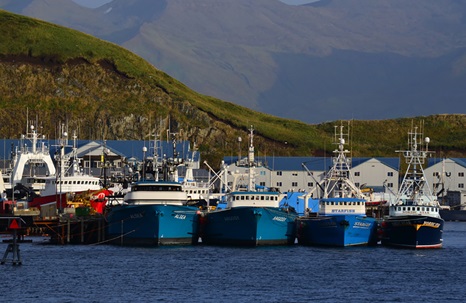
Biden administration rejects top Inslee choice for Alaska fish commission, reappoints trawl ally
The Biden administration has rejected a nominee for a key Alaska fisheries management post who could have tipped decisions toward the interests of tribes and conservation groups and away from the priorities of the large-boat, Seattle-based trawl industry. U.S. Commerce Secretary Gina Raimondo skipped over the top choice of Washington Democratic Gov. Jay Inslee, conservation advocate Becca Robbins Gisclair, and instead reappointed the last-ranked nominee on a slate of four candidates that Inslee offered: Anne Vanderhoeven, a trawl industry employee who has served on the panel for several years. Raimondo’s choice for the open North Pacific Fishery Management Council seat, which was confirmed Tuesday by Inslee’s natural resources advisor Ruth Musgrave, comes after what advocates describe as weeks of intense lobbying by supporters of both Gisclair and Vanderhoeven. more, >>CLICK TO READ<< 11:47
Alaska’s declining crab population due to trawlers catches attention of lawmaker
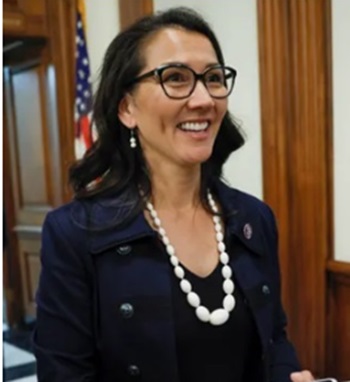 Alaska Rep. Mary Peltola’s mounting frustration with the largely Seattle-based pollock industry’s decades-old issue of inadvertently damaging the state’s rapidly declining crab populations and critical habitat for many other species may result in legislation a move heralded by the scientific and conservation communities. Members of the scientific community concerned with sustainability and conservation are currently in a deadlock with industrial pollock trawler fleets and the North Pacific Fishery Management Council over federal fishery regulations, including pelagic, or “mid-water” trawling, which uses wide-mouthed nets designed to target schools of Bering Sea Alaskan pollock. The Alaska Marine Conservation Council released a report in February 2023 analyzing the trawlers’ impact on red king crab habitats following the 2022 closure of the Alaska snow crab fisheries, which is still ongoing, and a two-year closure for Bristol Bay king crab that ended in 2023, underscoring the devastating environmental and financial toll. more, >>CLICK TO READ<< 19:17
Alaska Rep. Mary Peltola’s mounting frustration with the largely Seattle-based pollock industry’s decades-old issue of inadvertently damaging the state’s rapidly declining crab populations and critical habitat for many other species may result in legislation a move heralded by the scientific and conservation communities. Members of the scientific community concerned with sustainability and conservation are currently in a deadlock with industrial pollock trawler fleets and the North Pacific Fishery Management Council over federal fishery regulations, including pelagic, or “mid-water” trawling, which uses wide-mouthed nets designed to target schools of Bering Sea Alaskan pollock. The Alaska Marine Conservation Council released a report in February 2023 analyzing the trawlers’ impact on red king crab habitats following the 2022 closure of the Alaska snow crab fisheries, which is still ongoing, and a two-year closure for Bristol Bay king crab that ended in 2023, underscoring the devastating environmental and financial toll. more, >>CLICK TO READ<< 19:17
Pair of bills makes electronic monitoring of state-regulated fisheries a possibility
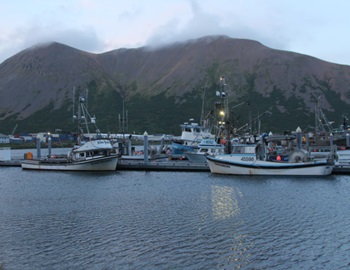 Nels Evens is a longliner and gillnetter, and the executive director of the Petersburg Vessel Owners Association. He says he’s not sure what the bills’ aim is. “Because it is so broad, and we don’t understand what it’s really trying to get at, we’re not supportive of it,” he said. The pair of bills – Senate Bill 209 and House Bill 294 – stem from a discussion at last year’s Board of Fisheries meeting. The Board was trying to figure out how to enforce regulations that require Area M fishermen to keep chum salmon, instead of tossing them back in favor of much more valuable King salmon. Area M is along the Alaska Peninsula and Eastern Aleutians. It intercepts some chum salmon bound for western Alaska. more, >>click to read<< 08:53
Nels Evens is a longliner and gillnetter, and the executive director of the Petersburg Vessel Owners Association. He says he’s not sure what the bills’ aim is. “Because it is so broad, and we don’t understand what it’s really trying to get at, we’re not supportive of it,” he said. The pair of bills – Senate Bill 209 and House Bill 294 – stem from a discussion at last year’s Board of Fisheries meeting. The Board was trying to figure out how to enforce regulations that require Area M fishermen to keep chum salmon, instead of tossing them back in favor of much more valuable King salmon. Area M is along the Alaska Peninsula and Eastern Aleutians. It intercepts some chum salmon bound for western Alaska. more, >>click to read<< 08:53
Alaska Gov. Dunleavy names ad consultant, talk show host Porcaro to commercial fisheries agency
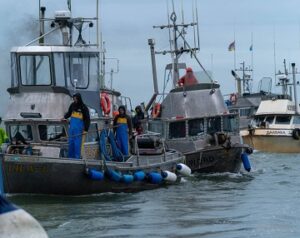 Alaska Republican Gov. Mike Dunleavy has appointed a GOP advertising consultant and talk show host to a highly paid state government job: a position overseeing commercial fishing permits. Dunleavy this month appointed Mike Porcaro as one of two commissioners overseeing the Commercial Fisheries Entry Commission, or CFEC — an obscure, Juneau-based agency with some 20 employees. The commission issues annual commercial fishing permits, grants and denies permit transfers in the event of illnesses and deaths and publishes fisheries reports and statistics. “All I’m doing is trying to answer a call of service, and I’m going to do the best job I can do,” Porcaro said in an interview Thursday. He added: “Judge me on my performance.”>click to read< 11:33
Alaska Republican Gov. Mike Dunleavy has appointed a GOP advertising consultant and talk show host to a highly paid state government job: a position overseeing commercial fishing permits. Dunleavy this month appointed Mike Porcaro as one of two commissioners overseeing the Commercial Fisheries Entry Commission, or CFEC — an obscure, Juneau-based agency with some 20 employees. The commission issues annual commercial fishing permits, grants and denies permit transfers in the event of illnesses and deaths and publishes fisheries reports and statistics. “All I’m doing is trying to answer a call of service, and I’m going to do the best job I can do,” Porcaro said in an interview Thursday. He added: “Judge me on my performance.”>click to read< 11:33
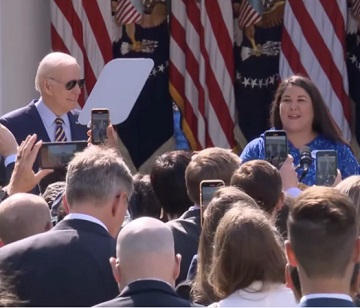
Big ripples – The Pebble Mine saga continues
In a move sure to anger Lower 48 environmentalists and much of Alaska, Gov. Mike Dunleavy has decided to sue the Environmental Protection Agency (EPA) over its blocking of a proposed Pebble Mine in the Iliamna Lake drainage of Southwest Alaska. And though the lawsuit is sure to upset many Alaska, it might be the last, best chance the state will ever get to secure the rights to self-government that Alaskans thought were granted at statehood in 1959. A variety of Alaska legal experts, both left and right, this week agreed the state’s appeal to the U.S. Supreme Court is a crapshoot. One called it a classic “hail Mary.” Lots of links,>click to read< 13:01
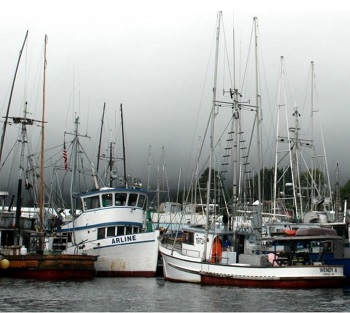
Southeast Alaska communities set to join opposition to lawsuit that threatens king salmon fishery
Ketchikan, Wrangell and Petersburg are set to join a growing chorus of Alaska voices highlighting the impact the suit could have on the region’s fishing fleet. The lawsuit from the Washington state-based Wild Fish Conservancy centers on an endangered Puget Sound population of orcas known as Southern Resident killer whales. Killer whales eat salmon, especially big, meaty king salmon, and the conservation group argues federal officials haven’t properly accounted for the impact the Southeast king salmon fishery has on the Puget Sound orcas. Late last year, a federal judge issued a report that threatens to close the Southeast king salmon fishery until the National Marine Fisheries Service comes up with a fix. >click to read< 11:50
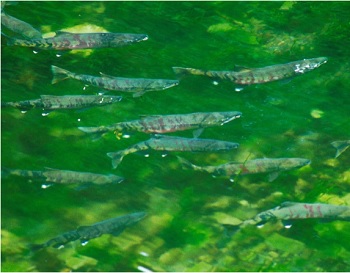
Alaska task force’s final report calls for new rules and more research to address seafood bycatch
Gov. Mike Dunleavy, who created the task force a year ago, released the group’s final report late Thursday. “I look forward to working with task force members and stakeholders to do everything we can to get more fish to return to Alaska’s waters,” Dunleavy said in a statement. The collapse of salmon runs vital to western Alaska — and public complaints that too many salmon were being intercepted at sea before returning to spawning grounds — triggered the creation of the Alaska Bycatch Task Force. However, its work extended to bycatch of various crab species and halibut. To some degree, bycatch is unavoidable, the task force said. >click to read< 09:10
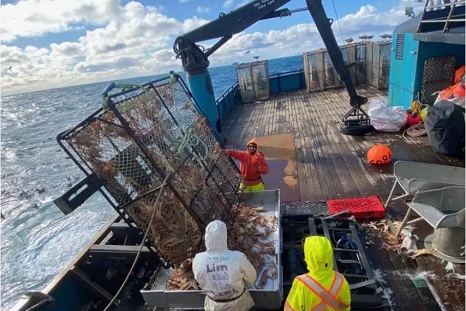
Disaster requests for Bering Sea crabbers highlight difficulty of getting financial relief to fishermen
The current process of getting financial relief to fishermen is cumbersome and takes a long time, but Bering Sea crabbers are hoping the plight of the snow crab population might change the way financial relief is delivered to fishermen. Gabriel Prout is a second-generation Bering Sea crab fisherman from Kodiak; he owns the F/V Silver Spray with his dad and brothers. He said there’s one big problem with the current process for handing out fishery disaster funding. “If you’re going to have a fishery disaster request program, you should be able to make it so the money is getting into the hands of those affected very quickly,” said Prout. Right now, it takes years for money to reach skippers and their crews. >click to read< 13:44
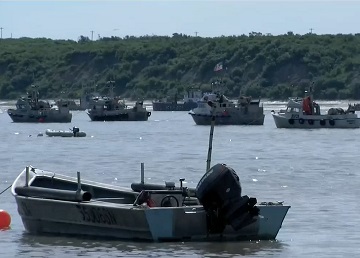
Nearly $132 million allocated for Alaska fishery disasters
The U.S. Commerce Department announced on Thursday that several Alaska fisheries are eligible to share in almost $132 million of federal disaster relief. The Yukon and Kuskokwim rivers are included after a chum and king salmon collapse last year. Impacted fishermen can share in $55 million, but that is also set to be split between fishermen from Southeast Alaska, Prince William Sound and Chignik. Gov. Mike Dunleavy submitted the disaster declaration to the federal government when applying for relief. >click to read< 10:53
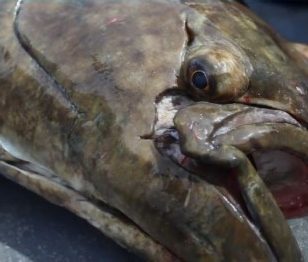
Bycatch task force works to refine mission ahead of November deadline
Bycatch is when fishing vessels catch something they’re not targeting. It could be tanner crab caught in a black cod pot, or halibut scooped up in a pollock trawl net. It’s been an incendiary issue in Alaska’s fisheries for decades. Now, as stocks of crab, salmon and halibut decline, trawl fisheries have come under fire for their role, which represents the vast majority of incidental catch in and around Alaska. The governor’s office took notice. Gov. Mike Dunleavy established a task force to review bycatch late last year with a deadline of November to submit its recommendations. But during that time, the Alaska Bycatch Review Task Force also has to establish its own priorities, break into subcommittees, and decide what it’s going to focus on before its mandate expires in just nine months. And there’s a lot of information to sort through already as it plays catch-up. >click to read< 11:01
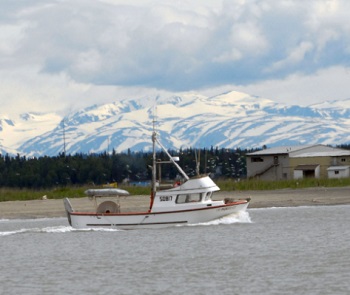
Alaska Department of Fish and Game forecasts fair to poor sockeye runs for Cook Inlet, Copper River
State biologists are projecting a mixed bag of returns this spring and summer for Southcentral’s popular sockeye salmon fisheries. Alaska Department of Fish and Game officials on Feb. 7 issued a forecast estimating that just less than 5 million sockeye will return to upper Cook Inlet river systems, allowing for a harvest of nearly 3 million sockeye from the region overall. It’s expected approximately 2.9 million fish from the total run will be headed to the Kenai, with another 941,000 pegged for the nearby Kasilof. >click to read< 19:19
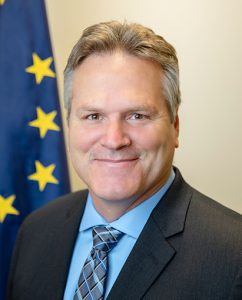
Dunleavy’s super-special election year bycatch task force – Bycatch is on the ballot.
Gov. Mike Dunleavy recently announced the formation of a shiny new “task force,” charged with studying the impacts of bycatch on Alaska fisheries and making recommendations to policy makers. The Alaska Department of Fish and Game has supposedly been doing exactly this for nearly half a century with its permanent voting seat on the North Pacific Fisheries Management Council, or NPFMC. >click to read< By Alexus Kwachka 17:12
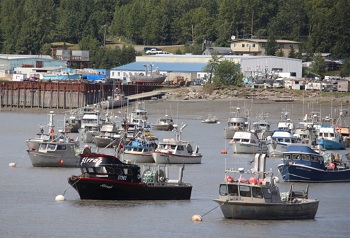
Kenai Peninsula Borough to ask feds for fishery disaster declaration
The Kenai Peninsula Borough Assembly voted Tuesday to ask the U.S. Secretary of Commerce to declare a sockeye salmon fisheries failure and economic disaster in the Upper Subdistrict of the Central District of Cook Inlet in response to a year that saw fewer and smaller fish, as well as lower-priced fish. >click to read< 07:55
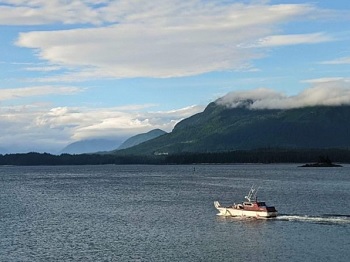
Metlakatla Indian Community suing Gov. Mike Dunleavy and senior state officials over fishing rights
The state’s sole Native reservation says the commercial fishing permit system unfairly prevents local fishermen from harvesting on their traditional fishing grounds, a right Metlakatla says is guaranteed to the tribe by Congress. The tribe of Metlakatla is asking a federal judge to prevent the state from requiring commercial fishing permits for tribal members. The people of Metlakatla have called Annette Island home since the late 19th century. That’s when roughly 820 Tsimshian people migrated with an Anglican missionary from coastal British Columbia to the then-uninhabited islands south of Ketchikan. But they weren’t just after land for a settlement. “The Annette Islands would have been worthless without access to fish and its adjacent fisheries,” attorneys for Metlakatla wrote in a lawsuit filed August 7 in federal court. >click to read< 18:06
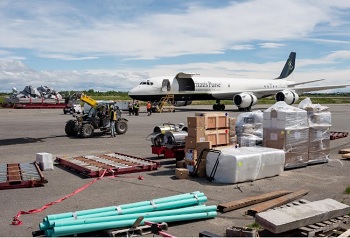
Being Ready: Samaritan’s Purse delivers 30-bed field hospital to Bristol Bay Borough
Samaritan’s Purse sent emergency field hospitals to Italy and New York this spring. Both places were badly hit by coronavirus. On Monday, the organization flew one to the Bristol Bay Borough. The borough is the epicenter of fish processing during the short sockeye fishery, and it’s population grows exponentially as seafood workers and fishermen come to the region. The 30-bed hospital can be set up within 48 hours. “It took a lot of cooperation, cause there’s a lot of — various agencies that had to cooperate. And they all did this at record speed, so I’m very thankful for the leadership of everybody who’s involved,” >click to read< 08:53
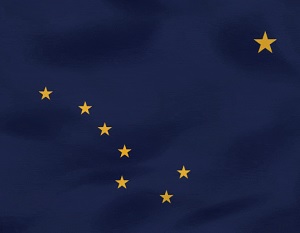
‘We’re open’: Alaska businesses can operate at full capacity Friday, Dunleavy says
Alaska businesses can open at full capacity on Friday and sports can resume, Gov. Mike Dunleavy announced Tuesday evening. “Friday, we’re open for business across the state of Alaska,” Dunleavy said at a news conference. Alaska will enter phase three and four of the government’s five-phase reopening plan at 8 a.m. Friday. That means restaurants, bars, gyms and other businesses can fully open. All churches, libraries and museums can too. Sports and recreational activities can resume, Dunleavy said. It’s the governor’s latest major lift of coronavirus-related restrictions. Previously, certain businesses could only operate at 25% to 50% capacity. “It’ll all be open, just like it was prior to the virus,” Dunleavy said. >click to read< 10:29
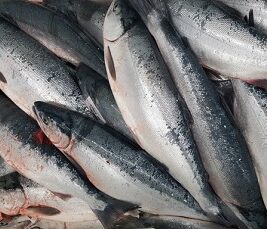
With coronavirus pandemic procedures in place, Copper River salmon season ready to open
Hundreds of vessels and workers flood into Prince William Sound each May for a chance to harvest the first fresh wild king salmon of the year, followed by the famous Copper River sockeye and the broader Prince William Sound pink salmon fisheries. However, with limited road access and health care facilities, city and state officials have been coordinating with the fleet and stakeholders about how to safely allow in deckhands, captains, and processing workers from Outside without inviting the pandemic to Cordova as well. “Fishermen are very concerned and have been concerned since day one,” said Francis Leach, the executive director of the United Fishermen of Alaska. “Now that procedures have been put in place, there are a lot of questions. It’s always a learning curve. Folks are really going to have to pay attention to (the mandate).” >click to read< 14:36
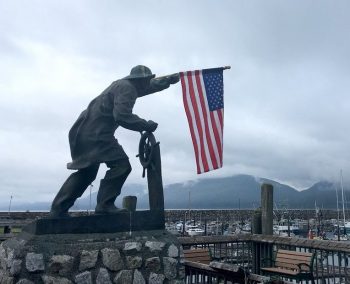
‘It’s gonna kill this community’: A tiny Alaska town and others in the state brace as governor guts budget
The little fishing town of Cordova, perched next to the Copper River Delta in Prince William Sound, is no stranger to the cycles of catastrophe, hardship and recovery. But residents say Alaska’s current budget crisis, which has pitted a Republican governor and his red pen against legislators — and inspired a bipartisan recall campaign — is unlike any threat they’ve ever faced. Cordovans are especially worried about cuts to the ferry system, their highway to the outside world.,, “This is a dismantling of our state: economically, emotionally, morally,” said Rep. Louise Stutes, a Republican who represents parts of south-central Alaska, including Cordova. “It’s unreal. It’s just stinking unreal.” >click to read< 10:15
Legislative Update: Amended budget is just a start for ferry service – By Rep. Louise Stutes – >click to read<
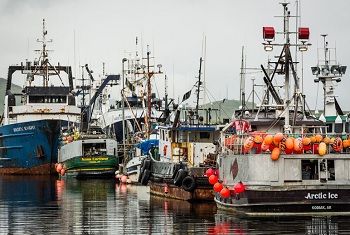
Alaska fishing communities would take hit under Dunleavy proposal to end fish tax revenue-sharing
Gov. Mike Dunleavy proposed legislation this week that would keep commercial fish tax revenue that has for years been shared with Alaska fishing communities in the state’s coffers instead, a move that mayors in some of those cities say would be devastating.At play are two taxes: Alaska’s fisheries business tax, and the fishery resource landing tax. Dunleavy’s legislation would repeal the fisheries business tax allocation to municipalities and repeal revenue sharing for the fishery resource landing tax. Those shared funds go to local governments in communities where fish processing and landings occur. >click to read<22:53






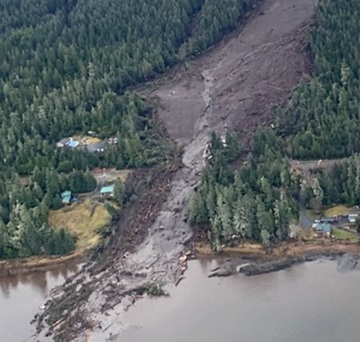




























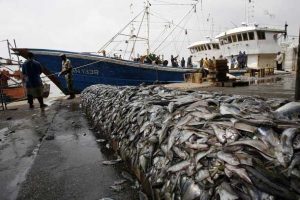
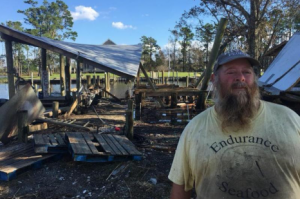
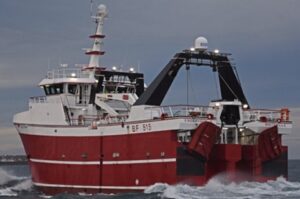
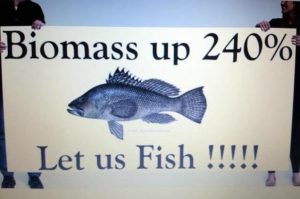
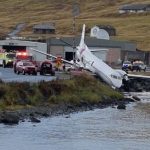
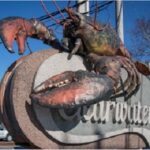
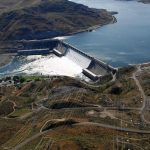
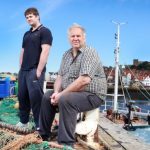





Declined for Alaska Board of Fisheries, Karl Johnstone says Legislature made a mistake
An allegation levied on the floor of the Alaska Legislature has opened old arguments about due process in cases of accused sexual harassment and misconduct. Last week, lawmakers meeting in joint session rejected Gov. Mike Dunleavy’s selection of Karl Johnstone for the Alaska Board of Fisheries. The rejection came after Rep. Ivy Spohnholz, D-Anchorage, said she had been contacted by two women who said Johnstone made “inappropriate and unwelcome sexual comments” to them while previously serving on the board.,, “There’s no truth to it at all. Zero truth,” Johnstone said Tuesday by phone. >click to read<20:01
Share this post